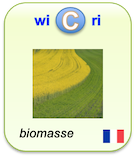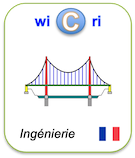Receding horizon iterative dynamic programming with discrete time models
Identifieur interne : 001259 ( Istex/Corpus ); précédent : 001258; suivant : 001260Receding horizon iterative dynamic programming with discrete time models
Auteurs : A. Rusnák ; M. Fikar ; M. A. Latifi ; A. MészárosSource :
- Computers and Chemical Engineering [ 0098-1354 ] ; 2001.
English descriptors
- KwdEn :
- Algorithm, Biochemical reactor, Chem, Chemical engineering, Computational load, Control action, Control actions, Control move, Control region, Control trajectories, Control trajectory, Cost function, Dilution rate, Discrete-time models, Distillation column, Dynamic optimisation, Dynamic optimization, Dynamic programming, Elsevier science, Execution times, Horizon formulation, Initial size, Input output models, Iteration, Iteration index, Iterative, Iterative dynamic programming, Last stage, Luus, Optimal control, Optimal control trajectory, Original method, Output trajectories, Performance index, Prediction horizon, Predictive control, Predictor, Process model, Process output, Rusnak, Sampling time, Second example, Simulation, Trajectory.
- Teeft :
- Algorithm, Biochemical reactor, Chem, Chemical engineering, Computational load, Control action, Control actions, Control move, Control region, Control trajectories, Control trajectory, Cost function, Dilution rate, Distillation column, Dynamic optimisation, Dynamic optimization, Dynamic programming, Elsevier science, Execution times, Horizon formulation, Initial size, Input output models, Iteration, Iteration index, Iterative, Last stage, Luus, Optimal control, Optimal control trajectory, Original method, Output trajectories, Performance index, Prediction horizon, Predictive control, Predictor, Process model, Process output, Rusnak, Sampling time, Second example, Simulation, Trajectory.
Abstract
Abstract: This contribution proposes a modified version of the Iterative Dynamic Programming (IDP) method. Two main differences to the original method are introduced. The new algorithm deals with discrete-time input–output models compared to continuous-time state–space models described by a set of ODE/DAE used in the original method. The main purpose of these modifications is to reduce computational load of the original method, estimate the process models more easily, and to enable its use on-line in receding horizon predictive control framework.
Url:
DOI: 10.1016/S0098-1354(00)00639-6
Links to Exploration step
ISTEX:7FA5878289C1EF94CEE4AA0F2E49348F19A3CAEBLe document en format XML
<record><TEI wicri:istexFullTextTei="biblStruct"><teiHeader><fileDesc><titleStmt><title xml:lang="en">Receding horizon iterative dynamic programming with discrete time models</title><author><name sortKey="Rusnak, A" sort="Rusnak, A" uniqKey="Rusnak A" first="A." last="Rusnák">A. Rusnák</name><affiliation><mods:affiliation>Department of Process Control, CHTF STU, Radlinského 9, SK-812 37 Bratislava, Slovakia</mods:affiliation></affiliation></author><author><name sortKey="Fikar, M" sort="Fikar, M" uniqKey="Fikar M" first="M." last="Fikar">M. Fikar</name><affiliation><mods:affiliation>Department of Process Control, CHTF STU, Radlinského 9, SK-812 37 Bratislava, Slovakia</mods:affiliation></affiliation><affiliation><mods:affiliation>Corresponding author. Tel.: +421-7-59325354; fax: +421-7-396469</mods:affiliation></affiliation><affiliation><mods:affiliation>E-mail: fikar@cvt.stuba.sk</mods:affiliation></affiliation></author><author><name sortKey="Latifi, M A" sort="Latifi, M A" uniqKey="Latifi M" first="M. A." last="Latifi">M. A. Latifi</name><affiliation><mods:affiliation>Laboratoire des Sciences du Génie Chimique, CNRS-ENSIC, B.P. 451, 1 rue Grandville, 54001 Nancy Cedex, France</mods:affiliation></affiliation><affiliation><mods:affiliation>1 Tel.: +33-3-83175234; fax: +33-3-83175326.</mods:affiliation></affiliation><affiliation><mods:affiliation>E-mail: latifi@ensic.u-nancy.fr</mods:affiliation></affiliation></author><author><name sortKey="Meszaros, A" sort="Meszaros, A" uniqKey="Meszaros A" first="A." last="Mészáros">A. Mészáros</name><affiliation><mods:affiliation>Department of Process Control, CHTF STU, Radlinského 9, SK-812 37 Bratislava, Slovakia</mods:affiliation></affiliation></author></titleStmt><publicationStmt><idno type="wicri:source">ISTEX</idno><idno type="RBID">ISTEX:7FA5878289C1EF94CEE4AA0F2E49348F19A3CAEB</idno><date when="2001" year="2001">2001</date><idno type="doi">10.1016/S0098-1354(00)00639-6</idno><idno type="url">https://api.istex.fr/document/7FA5878289C1EF94CEE4AA0F2E49348F19A3CAEB/fulltext/pdf</idno><idno type="wicri:Area/Istex/Corpus">001259</idno><idno type="wicri:explorRef" wicri:stream="Istex" wicri:step="Corpus" wicri:corpus="ISTEX">001259</idno></publicationStmt><sourceDesc><biblStruct><analytic><title level="a" type="main" xml:lang="en">Receding horizon iterative dynamic programming with discrete time models</title><author><name sortKey="Rusnak, A" sort="Rusnak, A" uniqKey="Rusnak A" first="A." last="Rusnák">A. Rusnák</name><affiliation><mods:affiliation>Department of Process Control, CHTF STU, Radlinského 9, SK-812 37 Bratislava, Slovakia</mods:affiliation></affiliation></author><author><name sortKey="Fikar, M" sort="Fikar, M" uniqKey="Fikar M" first="M." last="Fikar">M. Fikar</name><affiliation><mods:affiliation>Department of Process Control, CHTF STU, Radlinského 9, SK-812 37 Bratislava, Slovakia</mods:affiliation></affiliation><affiliation><mods:affiliation>Corresponding author. Tel.: +421-7-59325354; fax: +421-7-396469</mods:affiliation></affiliation><affiliation><mods:affiliation>E-mail: fikar@cvt.stuba.sk</mods:affiliation></affiliation></author><author><name sortKey="Latifi, M A" sort="Latifi, M A" uniqKey="Latifi M" first="M. A." last="Latifi">M. A. Latifi</name><affiliation><mods:affiliation>Laboratoire des Sciences du Génie Chimique, CNRS-ENSIC, B.P. 451, 1 rue Grandville, 54001 Nancy Cedex, France</mods:affiliation></affiliation><affiliation><mods:affiliation>1 Tel.: +33-3-83175234; fax: +33-3-83175326.</mods:affiliation></affiliation><affiliation><mods:affiliation>E-mail: latifi@ensic.u-nancy.fr</mods:affiliation></affiliation></author><author><name sortKey="Meszaros, A" sort="Meszaros, A" uniqKey="Meszaros A" first="A." last="Mészáros">A. Mészáros</name><affiliation><mods:affiliation>Department of Process Control, CHTF STU, Radlinského 9, SK-812 37 Bratislava, Slovakia</mods:affiliation></affiliation></author></analytic><monogr></monogr><series><title level="j">Computers and Chemical Engineering</title><title level="j" type="abbrev">CACE</title><idno type="ISSN">0098-1354</idno><imprint><publisher>ELSEVIER</publisher><date type="published" when="2001">2001</date><biblScope unit="volume">25</biblScope><biblScope unit="issue">1</biblScope><biblScope unit="page" from="161">161</biblScope><biblScope unit="page" to="167">167</biblScope></imprint><idno type="ISSN">0098-1354</idno></series></biblStruct></sourceDesc><seriesStmt><idno type="ISSN">0098-1354</idno></seriesStmt></fileDesc><profileDesc><textClass><keywords scheme="KwdEn" xml:lang="en"><term>Algorithm</term><term>Biochemical reactor</term><term>Chem</term><term>Chemical engineering</term><term>Computational load</term><term>Control action</term><term>Control actions</term><term>Control move</term><term>Control region</term><term>Control trajectories</term><term>Control trajectory</term><term>Cost function</term><term>Dilution rate</term><term>Discrete-time models</term><term>Distillation column</term><term>Dynamic optimisation</term><term>Dynamic optimization</term><term>Dynamic programming</term><term>Elsevier science</term><term>Execution times</term><term>Horizon formulation</term><term>Initial size</term><term>Input output models</term><term>Iteration</term><term>Iteration index</term><term>Iterative</term><term>Iterative dynamic programming</term><term>Last stage</term><term>Luus</term><term>Optimal control</term><term>Optimal control trajectory</term><term>Original method</term><term>Output trajectories</term><term>Performance index</term><term>Prediction horizon</term><term>Predictive control</term><term>Predictor</term><term>Process model</term><term>Process output</term><term>Rusnak</term><term>Sampling time</term><term>Second example</term><term>Simulation</term><term>Trajectory</term></keywords><keywords scheme="Teeft" xml:lang="en"><term>Algorithm</term><term>Biochemical reactor</term><term>Chem</term><term>Chemical engineering</term><term>Computational load</term><term>Control action</term><term>Control actions</term><term>Control move</term><term>Control region</term><term>Control trajectories</term><term>Control trajectory</term><term>Cost function</term><term>Dilution rate</term><term>Distillation column</term><term>Dynamic optimisation</term><term>Dynamic optimization</term><term>Dynamic programming</term><term>Elsevier science</term><term>Execution times</term><term>Horizon formulation</term><term>Initial size</term><term>Input output models</term><term>Iteration</term><term>Iteration index</term><term>Iterative</term><term>Last stage</term><term>Luus</term><term>Optimal control</term><term>Optimal control trajectory</term><term>Original method</term><term>Output trajectories</term><term>Performance index</term><term>Prediction horizon</term><term>Predictive control</term><term>Predictor</term><term>Process model</term><term>Process output</term><term>Rusnak</term><term>Sampling time</term><term>Second example</term><term>Simulation</term><term>Trajectory</term></keywords></textClass><langUsage><language ident="en">en</language></langUsage></profileDesc></teiHeader><front><div type="abstract" xml:lang="en">Abstract: This contribution proposes a modified version of the Iterative Dynamic Programming (IDP) method. Two main differences to the original method are introduced. The new algorithm deals with discrete-time input–output models compared to continuous-time state–space models described by a set of ODE/DAE used in the original method. The main purpose of these modifications is to reduce computational load of the original method, estimate the process models more easily, and to enable its use on-line in receding horizon predictive control framework.</div></front></TEI><istex><corpusName>elsevier</corpusName><keywords><teeft><json:string>iteration</json:string><json:string>luus</json:string><json:string>rusnak</json:string><json:string>iterative</json:string><json:string>chem</json:string><json:string>chemical engineering</json:string><json:string>predictor</json:string><json:string>trajectory</json:string><json:string>optimal control</json:string><json:string>original method</json:string><json:string>cost function</json:string><json:string>algorithm</json:string><json:string>control trajectories</json:string><json:string>control move</json:string><json:string>control trajectory</json:string><json:string>control region</json:string><json:string>distillation column</json:string><json:string>biochemical reactor</json:string><json:string>control actions</json:string><json:string>process model</json:string><json:string>performance index</json:string><json:string>dynamic programming</json:string><json:string>process output</json:string><json:string>prediction horizon</json:string><json:string>initial size</json:string><json:string>dynamic optimization</json:string><json:string>predictive control</json:string><json:string>output trajectories</json:string><json:string>optimal control trajectory</json:string><json:string>iteration index</json:string><json:string>control action</json:string><json:string>dynamic optimisation</json:string><json:string>last stage</json:string><json:string>computational load</json:string><json:string>dilution rate</json:string><json:string>sampling time</json:string><json:string>execution times</json:string><json:string>second example</json:string><json:string>horizon formulation</json:string><json:string>input output models</json:string><json:string>elsevier science</json:string><json:string>simulation</json:string></teeft></keywords><author><json:item><name>A. Rusnák</name><affiliations><json:string>Department of Process Control, CHTF STU, Radlinského 9, SK-812 37 Bratislava, Slovakia</json:string></affiliations></json:item><json:item><name>M. Fikar</name><affiliations><json:string>Department of Process Control, CHTF STU, Radlinského 9, SK-812 37 Bratislava, Slovakia</json:string><json:string>Corresponding author. Tel.: +421-7-59325354; fax: +421-7-396469</json:string><json:string>E-mail: fikar@cvt.stuba.sk</json:string></affiliations></json:item><json:item><name>M.A. Latifi</name><affiliations><json:string>Laboratoire des Sciences du Génie Chimique, CNRS-ENSIC, B.P. 451, 1 rue Grandville, 54001 Nancy Cedex, France</json:string><json:string>1 Tel.: +33-3-83175234; fax: +33-3-83175326.</json:string><json:string>E-mail: latifi@ensic.u-nancy.fr</json:string></affiliations></json:item><json:item><name>A. Mészáros</name><affiliations><json:string>Department of Process Control, CHTF STU, Radlinského 9, SK-812 37 Bratislava, Slovakia</json:string></affiliations></json:item></author><subject><json:item><lang><json:string>eng</json:string></lang><value>Iterative dynamic programming</value></json:item><json:item><lang><json:string>eng</json:string></lang><value>Discrete-time models</value></json:item><json:item><lang><json:string>eng</json:string></lang><value>Optimal control</value></json:item></subject><language><json:string>eng</json:string></language><originalGenre><json:string>Full-length article</json:string></originalGenre><abstract>This contribution proposes a modified version of the Iterative Dynamic Programming (IDP) method. Two main differences to the original method are introduced. The new algorithm deals with discrete-time input–output models compared to continuous-time state–space models described by a set of ODE/DAE used in the original method. The main purpose of these modifications is to reduce computational load of the original method, estimate the process models more easily, and to enable its use on-line in receding horizon predictive control framework.</abstract><qualityIndicators><score>4.088</score><pdfVersion>1.2</pdfVersion><pdfPageSize>552 x 768 pts</pdfPageSize><refBibsNative>true</refBibsNative><keywordCount>3</keywordCount><abstractCharCount>542</abstractCharCount><pdfWordCount>3140</pdfWordCount><pdfCharCount>18261</pdfCharCount><pdfPageCount>7</pdfPageCount><abstractWordCount>79</abstractWordCount></qualityIndicators><title>Receding horizon iterative dynamic programming with discrete time models</title><pii><json:string>S0098-1354(00)00639-6</json:string></pii><genre><json:string>research-article</json:string></genre><host><title>Computers and Chemical Engineering</title><language><json:string>unknown</json:string></language><publicationDate>2001</publicationDate><issn><json:string>0098-1354</json:string></issn><pii><json:string>S0098-1354(00)X0049-X</json:string></pii><volume>25</volume><issue>1</issue><pages><first>161</first><last>167</last></pages><genre><json:string>journal</json:string></genre></host><categories><wos><json:string>science</json:string><json:string>engineering, chemical</json:string><json:string>computer science, interdisciplinary applications</json:string></wos><scienceMetrix><json:string>applied sciences</json:string><json:string>engineering</json:string><json:string>chemical engineering</json:string></scienceMetrix><inist><json:string>sciences appliquees, technologies et medecines</json:string><json:string>sciences exactes et technologie</json:string><json:string>sciences et techniques communes</json:string><json:string>mathematiques</json:string></inist></categories><publicationDate>2001</publicationDate><copyrightDate>2001</copyrightDate><doi><json:string>10.1016/S0098-1354(00)00639-6</json:string></doi><id>7FA5878289C1EF94CEE4AA0F2E49348F19A3CAEB</id><score>1</score><fulltext><json:item><extension>pdf</extension><original>true</original><mimetype>application/pdf</mimetype><uri>https://api.istex.fr/document/7FA5878289C1EF94CEE4AA0F2E49348F19A3CAEB/fulltext/pdf</uri></json:item><json:item><extension>zip</extension><original>false</original><mimetype>application/zip</mimetype><uri>https://api.istex.fr/document/7FA5878289C1EF94CEE4AA0F2E49348F19A3CAEB/fulltext/zip</uri></json:item><istex:fulltextTEI uri="https://api.istex.fr/document/7FA5878289C1EF94CEE4AA0F2E49348F19A3CAEB/fulltext/tei"><teiHeader><fileDesc><titleStmt><title level="a" type="main" xml:lang="en">Receding horizon iterative dynamic programming with discrete time models</title></titleStmt><publicationStmt><authority>ISTEX</authority><publisher>ELSEVIER</publisher><availability><p>©2001 Elsevier Science Ltd</p></availability><date>2001</date></publicationStmt><notesStmt><note>A preliminary version of this paper was presented at ESCAPE 9, Budapest, 1999.</note><note type="content">Fig. 1: Receding horizon proposed IDP control.</note><note type="content">Fig. 2: Receding horizon original IDP control.</note><note type="content">Fig. 3: Receding horizon proposed IDP control with λ=10−4.</note><note type="content">Fig. 4: Results for the distillation column.</note></notesStmt><sourceDesc><biblStruct type="inbook"><analytic><title level="a" type="main" xml:lang="en">Receding horizon iterative dynamic programming with discrete time models</title><author xml:id="author-0000"><persName><forename type="first">A.</forename><surname>Rusnák</surname></persName><affiliation>Department of Process Control, CHTF STU, Radlinského 9, SK-812 37 Bratislava, Slovakia</affiliation></author><author xml:id="author-0001"><persName><forename type="first">M.</forename><surname>Fikar</surname></persName><email>fikar@cvt.stuba.sk</email><affiliation>Department of Process Control, CHTF STU, Radlinského 9, SK-812 37 Bratislava, Slovakia</affiliation><affiliation>Corresponding author. Tel.: +421-7-59325354; fax: +421-7-396469</affiliation></author><author xml:id="author-0002"><persName><forename type="first">M.A.</forename><surname>Latifi</surname></persName><email>latifi@ensic.u-nancy.fr</email><affiliation>Laboratoire des Sciences du Génie Chimique, CNRS-ENSIC, B.P. 451, 1 rue Grandville, 54001 Nancy Cedex, France</affiliation><affiliation>1 Tel.: +33-3-83175234; fax: +33-3-83175326.</affiliation></author><author xml:id="author-0003"><persName><forename type="first">A.</forename><surname>Mészáros</surname></persName><affiliation>Department of Process Control, CHTF STU, Radlinského 9, SK-812 37 Bratislava, Slovakia</affiliation></author><idno type="istex">7FA5878289C1EF94CEE4AA0F2E49348F19A3CAEB</idno><idno type="DOI">10.1016/S0098-1354(00)00639-6</idno><idno type="PII">S0098-1354(00)00639-6</idno></analytic><monogr><title level="j">Computers and Chemical Engineering</title><title level="j" type="abbrev">CACE</title><idno type="pISSN">0098-1354</idno><idno type="PII">S0098-1354(00)X0049-X</idno><imprint><publisher>ELSEVIER</publisher><date type="published" when="2001"></date><biblScope unit="volume">25</biblScope><biblScope unit="issue">1</biblScope><biblScope unit="page" from="161">161</biblScope><biblScope unit="page" to="167">167</biblScope></imprint></monogr></biblStruct></sourceDesc></fileDesc><profileDesc><creation><date>2001</date></creation><langUsage><language ident="en">en</language></langUsage><abstract xml:lang="en"><p>This contribution proposes a modified version of the Iterative Dynamic Programming (IDP) method. Two main differences to the original method are introduced. The new algorithm deals with discrete-time input–output models compared to continuous-time state–space models described by a set of ODE/DAE used in the original method. The main purpose of these modifications is to reduce computational load of the original method, estimate the process models more easily, and to enable its use on-line in receding horizon predictive control framework.</p></abstract><textClass xml:lang="en"><keywords scheme="keyword"><list><head>Keywords</head><item><term>Iterative dynamic programming</term></item><item><term>Discrete-time models</term></item><item><term>Optimal control</term></item></list></keywords></textClass></profileDesc><revisionDesc><change when="2001">Published</change></revisionDesc></teiHeader></istex:fulltextTEI><json:item><extension>txt</extension><original>false</original><mimetype>text/plain</mimetype><uri>https://api.istex.fr/document/7FA5878289C1EF94CEE4AA0F2E49348F19A3CAEB/fulltext/txt</uri></json:item></fulltext><metadata><istex:metadataXml wicri:clean="Elsevier, elements deleted: ce:floats; body; tail"><istex:xmlDeclaration>version="1.0" encoding="utf-8"</istex:xmlDeclaration><istex:docType PUBLIC="-//ES//DTD journal article DTD version 4.5.2//EN//XML" URI="art452.dtd" name="istex:docType"><istex:entity SYSTEM="gr1" NDATA="IMAGE" name="gr1"></istex:entity><istex:entity SYSTEM="gr2" NDATA="IMAGE" name="gr2"></istex:entity><istex:entity SYSTEM="gr3" NDATA="IMAGE" name="gr3"></istex:entity><istex:entity SYSTEM="gr4" NDATA="IMAGE" name="gr4"></istex:entity></istex:docType><istex:document><converted-article version="4.5.2" docsubtype="fla" xml:lang="en"><item-info><jid>CACE</jid><aid>2048</aid><ce:pii>S0098-1354(00)00639-6</ce:pii><ce:doi>10.1016/S0098-1354(00)00639-6</ce:doi><ce:copyright type="full-transfer" year="2001">Elsevier Science Ltd</ce:copyright></item-info><head><ce:article-footnote><ce:label>☆</ce:label><ce:note-para>A preliminary version of this paper was presented at ESCAPE 9, Budapest, 1999.</ce:note-para></ce:article-footnote><ce:title>Receding horizon iterative dynamic programming with discrete time models</ce:title><ce:author-group><ce:author><ce:given-name>A.</ce:given-name><ce:surname>Rusnák</ce:surname><ce:cross-ref refid="AFF1"><ce:sup>a</ce:sup></ce:cross-ref></ce:author><ce:author><ce:given-name>M.</ce:given-name><ce:surname>Fikar</ce:surname><ce:cross-ref refid="AFF1"><ce:sup>a</ce:sup></ce:cross-ref><ce:cross-ref refid="CORR1">*</ce:cross-ref><ce:e-address>fikar@cvt.stuba.sk</ce:e-address></ce:author><ce:author><ce:given-name>M.A.</ce:given-name><ce:surname>Latifi</ce:surname><ce:cross-ref refid="FN1"><ce:sup>1</ce:sup></ce:cross-ref><ce:cross-ref refid="AFF2"><ce:sup>b</ce:sup></ce:cross-ref><ce:e-address>latifi@ensic.u-nancy.fr</ce:e-address></ce:author><ce:author><ce:given-name>A.</ce:given-name><ce:surname>Mészáros</ce:surname><ce:cross-ref refid="AFF1"><ce:sup>a</ce:sup></ce:cross-ref></ce:author><ce:affiliation id="AFF1"><ce:label>a</ce:label><ce:textfn>Department of Process Control, CHTF STU, Radlinského 9, SK-812 37 Bratislava, Slovakia</ce:textfn></ce:affiliation><ce:affiliation id="AFF2"><ce:label>b</ce:label><ce:textfn>Laboratoire des Sciences du Génie Chimique, CNRS-ENSIC, B.P. 451, 1 rue Grandville, 54001 Nancy Cedex, France</ce:textfn></ce:affiliation><ce:correspondence id="CORR1"><ce:label>*</ce:label><ce:text>Corresponding author. Tel.: +421-7-59325354; fax: +421-7-396469</ce:text></ce:correspondence><ce:footnote id="FN1"><ce:label>1</ce:label><ce:note-para>Tel.: +33-3-83175234; fax: +33-3-83175326.</ce:note-para></ce:footnote></ce:author-group><ce:date-received day="5" month="11" year="1999"></ce:date-received><ce:date-accepted day="13" month="9" year="2000"></ce:date-accepted><ce:abstract><ce:section-title>Abstract</ce:section-title><ce:abstract-sec><ce:simple-para>This contribution proposes a modified version of the Iterative Dynamic Programming (IDP) method. Two main differences to the original method are introduced. The new algorithm deals with discrete-time input–output models compared to continuous-time state–space models described by a set of ODE/DAE used in the original method. The main purpose of these modifications is to reduce computational load of the original method, estimate the process models more easily, and to enable its use on-line in receding horizon predictive control framework.</ce:simple-para></ce:abstract-sec></ce:abstract><ce:keywords class="keyword"><ce:section-title>Keywords</ce:section-title><ce:keyword><ce:text>Iterative dynamic programming</ce:text></ce:keyword><ce:keyword><ce:text>Discrete-time models</ce:text></ce:keyword><ce:keyword><ce:text>Optimal control</ce:text></ce:keyword></ce:keywords></head></converted-article></istex:document></istex:metadataXml><mods version="3.6"><titleInfo lang="en"><title>Receding horizon iterative dynamic programming with discrete time models</title></titleInfo><titleInfo type="alternative" lang="en" contentType="CDATA"><title>Receding horizon iterative dynamic programming with discrete time models</title></titleInfo><name type="personal"><namePart type="given">A.</namePart><namePart type="family">Rusnák</namePart><affiliation>Department of Process Control, CHTF STU, Radlinského 9, SK-812 37 Bratislava, Slovakia</affiliation><role><roleTerm type="text">author</roleTerm></role></name><name type="personal"><namePart type="given">M.</namePart><namePart type="family">Fikar</namePart><affiliation>Department of Process Control, CHTF STU, Radlinského 9, SK-812 37 Bratislava, Slovakia</affiliation><affiliation>Corresponding author. Tel.: +421-7-59325354; fax: +421-7-396469</affiliation><affiliation>E-mail: fikar@cvt.stuba.sk</affiliation><role><roleTerm type="text">author</roleTerm></role></name><name type="personal"><namePart type="given">M.A.</namePart><namePart type="family">Latifi</namePart><affiliation>Laboratoire des Sciences du Génie Chimique, CNRS-ENSIC, B.P. 451, 1 rue Grandville, 54001 Nancy Cedex, France</affiliation><affiliation>1 Tel.: +33-3-83175234; fax: +33-3-83175326.</affiliation><affiliation>E-mail: latifi@ensic.u-nancy.fr</affiliation><role><roleTerm type="text">author</roleTerm></role></name><name type="personal"><namePart type="given">A.</namePart><namePart type="family">Mészáros</namePart><affiliation>Department of Process Control, CHTF STU, Radlinského 9, SK-812 37 Bratislava, Slovakia</affiliation><role><roleTerm type="text">author</roleTerm></role></name><typeOfResource>text</typeOfResource><genre type="research-article" displayLabel="Full-length article" authority="ISTEX" authorityURI="https://content-type.data.istex.fr" valueURI="https://content-type.data.istex.fr/ark:/67375/XTP-1JC4F85T-7">research-article</genre><originInfo><publisher>ELSEVIER</publisher><dateIssued encoding="w3cdtf">2001</dateIssued><copyrightDate encoding="w3cdtf">2001</copyrightDate></originInfo><language><languageTerm type="code" authority="iso639-2b">eng</languageTerm><languageTerm type="code" authority="rfc3066">en</languageTerm></language><abstract lang="en">Abstract: This contribution proposes a modified version of the Iterative Dynamic Programming (IDP) method. Two main differences to the original method are introduced. The new algorithm deals with discrete-time input–output models compared to continuous-time state–space models described by a set of ODE/DAE used in the original method. The main purpose of these modifications is to reduce computational load of the original method, estimate the process models more easily, and to enable its use on-line in receding horizon predictive control framework.</abstract><note>A preliminary version of this paper was presented at ESCAPE 9, Budapest, 1999.</note><note type="content">Fig. 1: Receding horizon proposed IDP control.</note><note type="content">Fig. 2: Receding horizon original IDP control.</note><note type="content">Fig. 3: Receding horizon proposed IDP control with λ=10−4.</note><note type="content">Fig. 4: Results for the distillation column.</note><subject lang="en"><genre>Keywords</genre><topic>Iterative dynamic programming</topic><topic>Discrete-time models</topic><topic>Optimal control</topic></subject><relatedItem type="host"><titleInfo><title>Computers and Chemical Engineering</title></titleInfo><titleInfo type="abbreviated"><title>CACE</title></titleInfo><genre type="journal" authority="ISTEX" authorityURI="https://publication-type.data.istex.fr" valueURI="https://publication-type.data.istex.fr/ark:/67375/JMC-0GLKJH51-B">journal</genre><originInfo><publisher>ELSEVIER</publisher><dateIssued encoding="w3cdtf">20010101</dateIssued></originInfo><identifier type="ISSN">0098-1354</identifier><identifier type="PII">S0098-1354(00)X0049-X</identifier><part><date>20010101</date><detail type="volume"><number>25</number><caption>vol.</caption></detail><detail type="issue"><number>1</number><caption>no.</caption></detail><extent unit="issue-pages"><start>1</start><end>190</end></extent><extent unit="pages"><start>161</start><end>167</end></extent></part></relatedItem><identifier type="istex">7FA5878289C1EF94CEE4AA0F2E49348F19A3CAEB</identifier><identifier type="ark">ark:/67375/6H6-0H03QRJQ-7</identifier><identifier type="DOI">10.1016/S0098-1354(00)00639-6</identifier><identifier type="PII">S0098-1354(00)00639-6</identifier><accessCondition type="use and reproduction" contentType="copyright">©2001 Elsevier Science Ltd</accessCondition><recordInfo><recordContentSource authority="ISTEX" authorityURI="https://loaded-corpus.data.istex.fr" valueURI="https://loaded-corpus.data.istex.fr/ark:/67375/XBH-HKKZVM7B-M">elsevier</recordContentSource><recordOrigin>Elsevier Science Ltd, ©2001</recordOrigin></recordInfo></mods><json:item><extension>json</extension><original>false</original><mimetype>application/json</mimetype><uri>https://api.istex.fr/document/7FA5878289C1EF94CEE4AA0F2E49348F19A3CAEB/metadata/json</uri></json:item></metadata><serie></serie></istex></record>Pour manipuler ce document sous Unix (Dilib)
EXPLOR_STEP=$WICRI_ROOT/Wicri/Lorraine/explor/LrgpV1/Data/Istex/Corpus
HfdSelect -h $EXPLOR_STEP/biblio.hfd -nk 001259 | SxmlIndent | more
Ou
HfdSelect -h $EXPLOR_AREA/Data/Istex/Corpus/biblio.hfd -nk 001259 | SxmlIndent | more
Pour mettre un lien sur cette page dans le réseau Wicri
{{Explor lien
|wiki= Wicri/Lorraine
|area= LrgpV1
|flux= Istex
|étape= Corpus
|type= RBID
|clé= ISTEX:7FA5878289C1EF94CEE4AA0F2E49348F19A3CAEB
|texte= Receding horizon iterative dynamic programming with discrete time models
}}
|
| This area was generated with Dilib version V0.6.32. | |



